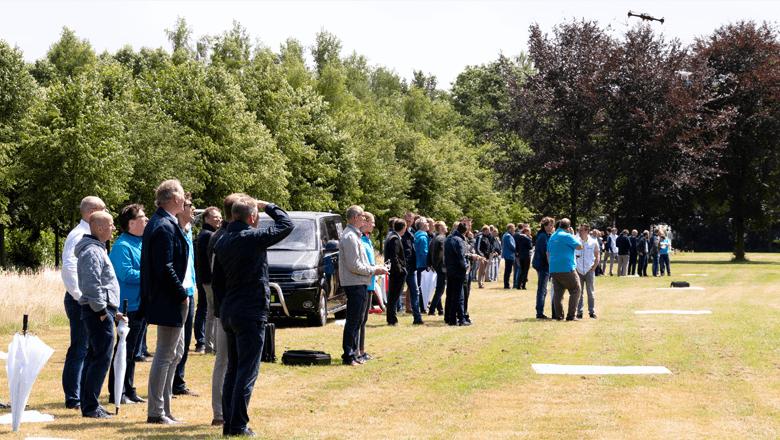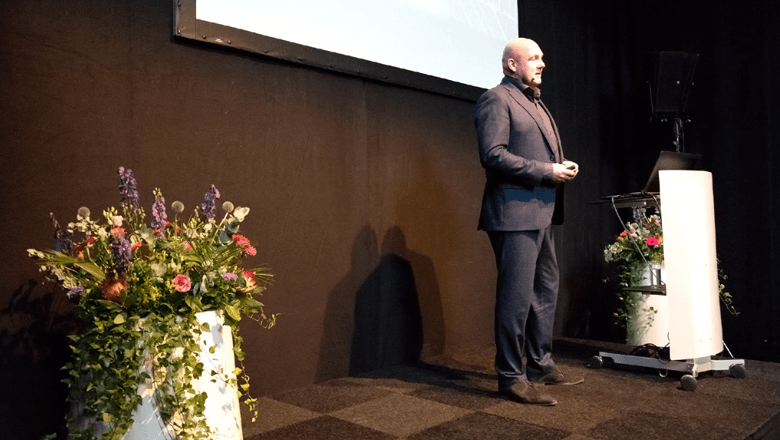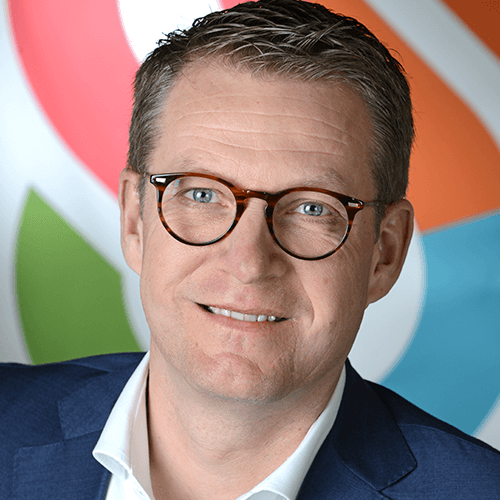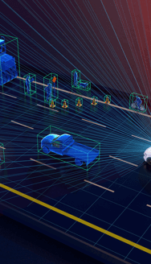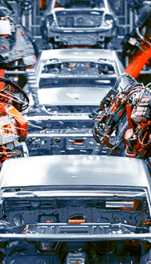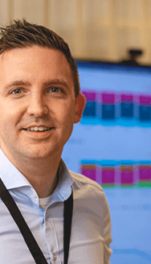Chain integration: focus is essential
In chain integration, all parties in the chain work together. All consecutive links have an important, individual role in the entire development and production process. This is true from the various departments within a company through to the suppliers and the customers. Collaboration within the supply chain is crucial. Are companies that fail to focus on chain integration viable? This was one of the questions asked during the customer day at Sentech. The speakers included astronaut André Kuipers and Agrifac’s former Chief of Innovation & Creation, Peter Millenaar.
Interaction
The traditional customer day was organised on Friday 22 June in Sentech’s production hall, which was suitably decorated for the occasion. The opening speech was made by Sentech’s Director Marcel Figge, who emphasised the importance of chain integration. Companies must focus on their core competency in order to be and remain successful, according to Figge.
‘The right focus is essential; that’s the first step. Then you need your partners in the chain, each with its own core competency. To be successful together, there must be genuine interaction between the various parties. I am convinced that you must learn to communicate with your partners in the chain and genuinely explore each other’s areas of expertise. Otherwise, you will never be in a position to bring a good product to market.’
Collaboration
Figge was referring to the book, Radical Candor, by the American writer Kim Scott. According to Scott, there are three – quite basic – principles for developing a good business relationship: make it personal, make sure you get it done and understand why it matters.
Figge: ‘A great book that makes the importance of connecting very clear. Only genuine interest leads to an optimal collaboration.’ Figge thinks the book is a must read to take along on holiday.

Focus is essential in chain integration. By working together in an inter-professional way, as in the case of drone flying, you can achieve more.
Stealing time
Then it was Peter Millenaar’s turn to speak. He emphasised the importance of listening well. As director, Millenaar built the Steenwijk company Agrifac into a global player in ten years’ time and chose to take a well-deserved sabbatical starting in spring.
‘I no longer agreed with the course Agrifac was taking and consider myself too much of a visionary to compromise. So, I’m doing nothing for a year. I’m going to spend three months crossing Africa in a Land Cruiser with my two sons.’
Interprofessional collaboration
Now he has plenty of time for reflection. ‘What is it really about, in my experience? Actually, it is all about quality of life. What makes everyone happy? Giving and receiving attention, both in your private life and at work. That’s what we should focus on much more.’
But Millenaar observes that it works differently in many other companies. There, purchasers and salespeople are busy attracting new customers and closing deals, instead of collaborating in an interprofessional manner.
‘I think that’s outdated. Buying and selling is stealing someone’s time. You no longer really need to convince customers to buy something from you. They know what they want and can find it themselves. You have to talk to them. Try to find out what they are doing and why.’
Millenaar cited Sinek’s golden circle. In the thought process of this marketing expert and writer, it’s about the “why”. Each company must be concerned with the question: Why do we do what we do.
Millenaar: ‘All around me, I see that companies are mainly concerned with the what and how of what they are doing. At trade shows, I hear manufacturers of spraying machines explaining to me what their machines can do. But it’s not about that. The “why” leads to a better world. Explain the “why”: a good machine can help a farmer to harvest the same yield from less land. That can result in more nature and lead to a better world. Then you are adding value.’

Chain integration: to the core
How is chain integration organised at Agrifac? Millenaar explains: ‘You have to make the time to really have a discussion with the customer. In such a discussion, I always made two promises to the customer: I will earn money from you and I’m not going to produce what you want. Because during the discussion, it always turned out that the customer needed something different than what they thought. I went to the core: why do you need something? In almost all cases, this resulted in a product that was different than what they thought they needed.’
That is the tip Millenaar would like to give this afternoon: search together for the “why”.
And, finally, a question from the audience: what cost savings are possible with chain integration? ‘I find “cost savings” to be a strange term. Because there are so many hidden costs, for example in the design, in co-ordination of the production, etc. I think that you must first determine the “why”. Why do you as a customer need that one bolt? Is there no better design possible without that bolt? Then you’ll save the entire process of design, assembly and production. Keep asking questions; it’s more than worth it.’
Sensors
Then it was time for André Kuipers, the man who spent 203 days in space during two missions. In the International Space Station (ISS), he saw the sun rise and set sixteen times a day. Among other topics, he spoke about the large number of sensors in the ISS and the satellites which revolve around the Earth.
‘The Netherlands is good at producing sensors. They continuously keep an eye on the Earth’s surface, among other things. Measuring the amounts of nitrogen and methane, and monitoring safety. And there are also many sensors in the ISS. To connect the Soyuz capsule to the ISS, for example, and to disconnect it upon departure.’

There is even chain integration and collaboration in space, Kuipers says. ‘You work with people of different nationalities. For instance, as a Dutchman I worked with a Canadian commander on an American project, which had to be connected to a Russian component on the International Space Station. That’s something really special.’
Better products
A fantastic day, customer Tim Blömer said once it was over, ‘very nice to be part of it.’ The director of the Twente tech company Mic-O-Data thought Kuipers’ talk was ‘captivating’. And the theme was well chosen.
‘Every company must deal with chain integration. The more that different chains co-ordinate with each other, the better the results. It makes work easier; I also notice this in the collaboration between Mic-O-Data and Sentech. Good agreements lead to shorter production times and better products. Especially if, as in our case, all parties bear their own responsibility.’
Benno Sterk also had an enjoyable day. The DAF commodity manager has been a customer for some twelve years, by his reckoning. ‘Or maybe even fifteen years; I’m not exactly sure. Time goes by so quickly.’
He thought the two speakers were great. ‘Millenaar was surprising and open. He has an unusual philosophy. He made comments that I am certainly going to think about.’
As far as chain integration is concerned, Sterk was clear: ‘It is greatly important to form a team of people from the different companies involved as quickly as possible and to keep involving all of them in the process. That delivers the best results. But I notice around me that this certainly does not always happen. When it comes to chain integration, many managers are still too conservative. They are afraid to share knowledge and expertise, even though it is so important. So, yes, in my opinion, it was a well-chosen theme.’
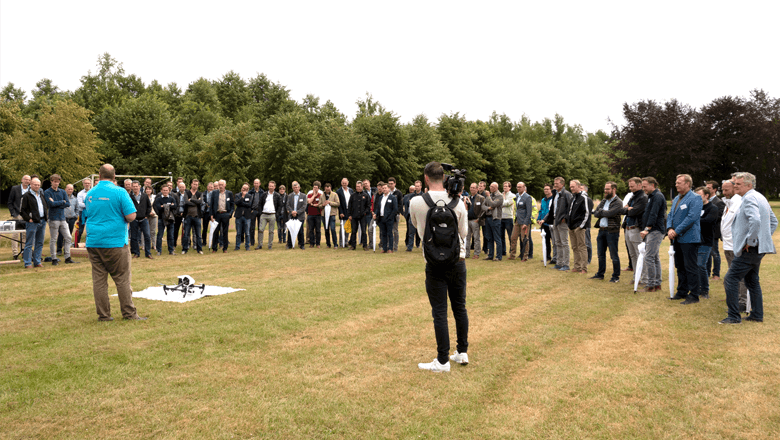
The competency of collaboration
Focus seems to be essential to chain integration and by working in an interprofessional manner in this respect, you make better products. A perfect example of collaboration is the IoT Toilet project.
After all, the key to company continuity is smart technology that is connected to the cloud and applied to your sector. Four specialists have been brought together to make this roll-out possible.
Searching for and finding the right specialists in the chain can be a job in itself. Someone who contributes ideas can be helpful at such times.
Do you solve it by yourself, or do you ask someone to step in?
![]()
Photos

